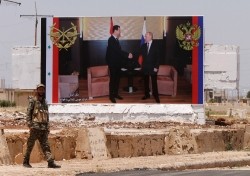Report
Trends in the Draw of Americans to Foreign Terrorist Organizations from 9/11 to Today
Dec 18, 2018
The Islamic State of Iraq and the Levant (ISIL) has been more successful than its predecessor organization, al Qaeda, in drawing Americans to its cause. Americans drawn to ISIL are more likely to be younger, less educated, Caucasian/white or African American/black, and to have been born in the United States.






















